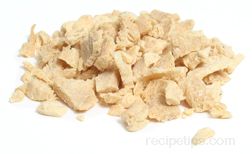Realizing that we need to have at least 20 amino acids for the synthesis of the proteins in our body, we use foods to secure the additional proteins. Thus, the protein provided by a food is classified as either complete or incomplete protein. A food with complete protein provides all of the essential amino acids necessary for the body. Foods that are considered as those with complete proteins include beef, lamb, pork, poultry, cheese, eggs, fish, and milk. Foods that do not provide all of the essential amino acids contain incomplete protein (plant foods), which include grains, nuts, fruits, and vegetables. Combining both incomplete protein foods with complete protein foods will enable the body to receive the essential amino acids required daily.
While it is beneficial to receive the daily requirements of protein, it is not always beneficial to maintain a high protein diet, since health issues such as excessive stress on kidneys may result. Daily requirements for protein depend on age, medical history and daily diet. However, consumption of 2 or 3 servings of protein rich foods daily provides sufficiently for the needs of most people.










